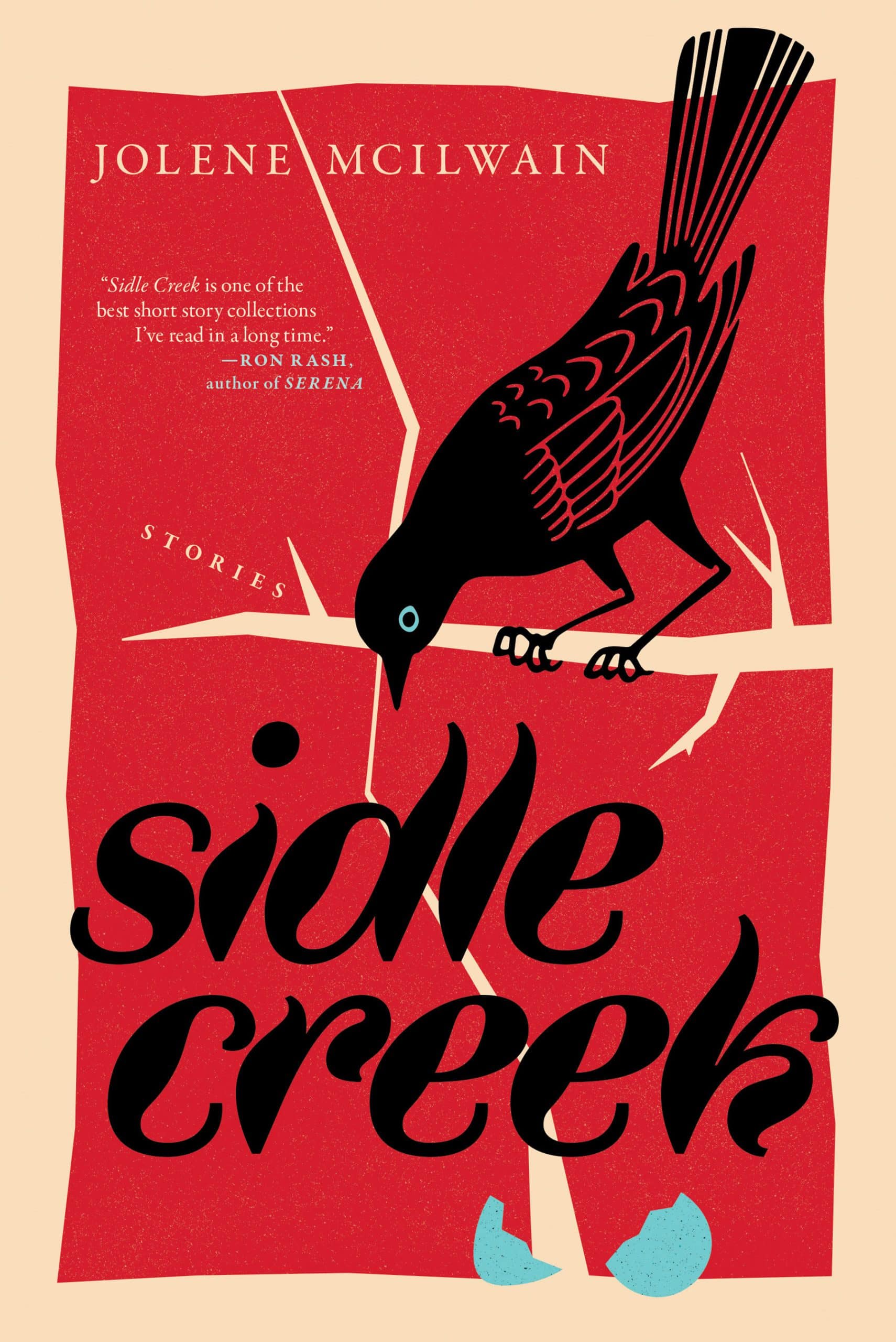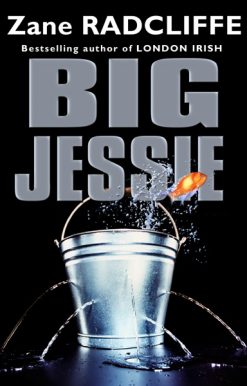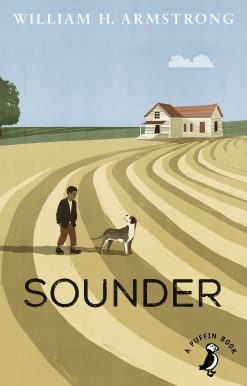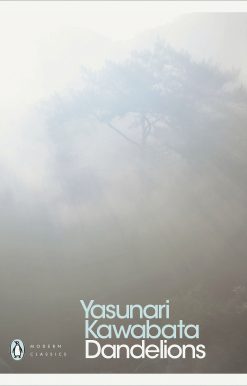Sidle Creek
| by |
|---|
13.00 JOD
Please allow 2 – 5 weeks for delivery of this item
Description
A NPR Book of the Year A Library Journal Best Books of 2023 A Library Journal 2023 Best Book Covers of the Year”Sidle Creek is one of the best story collections I’ve read in a long time.” – Ron Rash, New York Times bestselling author of Serena Set in the bruised, mined, and timbered hills of Appalachia in western Pennsylvania, Sidle Creek is a tender, truthful exploration of a small town and the people who live there, told by a brilliant new voice in fiction.In Sidle Creek, McIlwain skillfully interrogates the myths and stereotypes of the mining, mill, and farming towns where she grew up. With stories that take place in diners and dive bars, town halls and bait shops, McIlwain’s writing explores themes of class, work, health, and trauma, and the unexpected human connections of small, close-knit communities. All the while, the wild beauty of the natural world weaves its way in, a source of the town’s livelihood – and vulnerable to natural resource exploitation.With an alchemic blend of taut prose, gorgeous imagery, and deep sensitivity for all of the living beings within its pages, Sidle Creek will sit snugly on bookshelves between Annie Proulx, Joy Williams, and Louise Erdrich.
Additional information
| Weight | 0.28 kg |
|---|---|
| Dimensions | 1.91 × 13.92 × 20.78 cm |
| PubliCanadation City/Country | USA |
| by | |
| Format | Paperback |
| Language | |
| Pages | 256 |
| Publisher | |
| Year Published | 2023-5-16 |
| Imprint | |
| ISBN 10 | 1685890415 |
| About The Author | Jolene McIlwain’s fiction has been nominated for the Pushcart Prize and appeared in numerous literary journals, and in 2019's Best Small Fictions Anthology. Her work was named finalist for 2018’s Best of the Net, Glimmer Train’s and River Styx’s contests, and was a semifinalist in Nimrod’s Katherine Anne Porter Prize. She’s taught literary theory/analysis at Duquesne and Chatham Universities and worked as a radiologic technologist. She was born, raised, and currently lives in a small town in the Appalachian plateau of Western Pennsylvania. |
A NPR Book of the Year A Library Journal Best Books of 2023 A Library Journal 2023 Best Book Covers of the Year"The 22 stories in Sidle Creek charm, surprise, and convey a deep love of the people and place McIlwain has long called home…beautiful prose." —NPR"[A] stunning new collection of short fiction that presents a region known for hunting, fishing, fracking and Rolling Rock beer in all of its tender and terrifying complexity…thrilling narrative[s]…lyrical…luminous…" —AP Wire "Among many possible superlatives, it’s this deep feeling of shared humanity that makes Sidle Creek a stunning debut." —The Pittsburgh Post-Gazette "A promising writer…poignant, poetic…readers will have a hard time getting enough of these stories." – Pittsburgh Quarterly"Impressive debut story collection…McIlwain has the gift of writing." — CRAFT "[an] impressive debut collection spotlights the hard-edged people who call rural western Pennsylvania home…McIlwain’s reverent regard for the natural world makes her a worthy successor of Annie Dillard." —Publishers Weekly, Starred Review "Like fictional Sidle Creek, wandering through rural western Pennsylvania, McIlwain’s stories wind through the same country, touching down in the lives of locals…McIlwain writes beautifully of the work that people do…illuminating human heartache…" —Kirkus Reviews "While the stories each take place in the same location, the people and their experiences vary. Each one carries so much human emotion and lived life, as well as hopes and griefs. I need to sit with each one, short and longer, afterwards for a little bit." " —Chloe Yelena Miller co-founder of Brown Bag Lit"Riveting debut collection…a showcase of vivid, empathetic stories that defy the stereotypes about her [McIlwain] rural Western Pennsylvania…Sidle Creek is a rare gem, a compelling blend of nature and humanity perfect for fans of Barbara Kingsolver's Prodigal Summer and Daisy Johnson's Fen." —Shelf Awareness "In a lesser writer’s hands, Jolene Mcllwain’s hardscrabble characters could become one-dimensional, stereotypic, but her empathy is such that we never doubt our kinship to them and their ultimate concerns. These stories are artfully constructed and the writing vivid and precise, often poetic but never pretentious. Sidle Creek is one of the best story collections I’ve read in a long time." —Ron Rash, New York Times bestselling author of Serena“She can write. Not an easy story but a deeply satisfying one.”—Dorothy Allison, author, Bastard Out of Carolina “Welcome to the Pennsylvania of Jolene Mcllwain, a world of strip mines, cockfights, deer hunters, Rolling Rock beer, and a cast of characters as memorable as any from Sherwood Anderson’s Winesburg, Ohio. Mcllwain’s debut story collection, Sidle Creek, shimmers with the plain-spoken, and yet luminous, portrayals of its rural characters whose lives are made up of moments of grit and grace. How does she do it? How does she turn the ordinary into something magical, universal, and eternal? These are stories to savor for all they have to tell us about being alive.” —Lee Martin, author of the Pulitzer Prize Finalist, The Bright Forever“Sidle Creek is a beautifully drawn collection that turns away from nothing in the pursuit of hard truths. Atmospheric and thrumming with life, these stories offer the ultimate gift—a chance to look within and ask our own difficult questions, and if we're lucky, offer ourselves the same hard-won understanding we can’t help but have for these unforgettable characters. These are the stories that haunt them, the ones they can’t help but tell, and that energy radiates off every page in evermore surprising and heartbreaking ways. Sidle Creek aches with the particular beauty of grief and is written with remarkable grace." —Chelsea Bieker, author of GODSHOT “Jolene McIlwain is a master of the vividly imagined natural world and of complicated characters, young and old. Meals burned and letters went unanswered as I waited to find out if the baby would survive, which boy would win the fight, whether the deer had escaped in these suspenseful stories. Sidle Creek is a marvellous debut.” —Margot Livesey, author of The Boy in the Field “In Sidle Creek, characters don’t fall in love, they unearth it. And that’s what these stories do, they unearth layer upon layer of love for life and all its hills and valleys. These are stories in which textures are beagle-soft; a creek can heal or at least make you believe it can; a calf can be a trigger to a violent memory and the cutest little thing; a person can be a quartersawn board, which is to say stable, or they can be rift-sawn, which is to say not. These stories show life in all of its beauty and its horror.” —Ayşe Papatya Bucak, author of The Trojan War Museum “Heir to the immortal ruralists of the American short story’s halcyon era, Jolene McIlwain crafts fiction so close to the bone, with such an unflinching fearlessness of the soul’s dark night, that she will restore your faith in what the short story can achieve in the hands of a born expert. Sidle Creek is a debut worthy of alignment with the best of Dorothy Allison and Daniel Woodrell.” —William Giraldi, author of Hold the Dark “Jolene McIlwain’s Sidle Creek is a debut collection of stories that reads like the work of a seasoned master. Like Chekhov, she writes about her characters with both a cold eye and a warm heart, and as a result they and their conflicts and traumas come vividly and complexly to life. And her prose is so rich with sensory imagery that it allows us to see through the words as through a window into the world she describes, and that world, the brutal and beautiful world of western Pennsylvania’s Appalachian plateau, is so compelling it becomes virtually a character itself. This is a book, and an author, that should not be missed.” —David Jauss, author of Glossolalia: New & Selected Stories “There's a subterranean wisdom threading through the ground of these stories, creating deep links, pulling stunning parts into a still more stunning whole. Jolene McIlwain gives us the kind of truths that can only come from knowing her subjects–people, animals, and landscape alike–entirely and truly, in all their darkness and light. An extraordinary debut from a writer of rare insight and lyric power.” —Clare Beams, author of The Illness Lesson “The stories in Jolene McIlwain’s Sidle Creek are dark and painful, atmospheric and heartbreakingly honest. Filled with characters struggling to survive in a setting as alive and rich as any I’ve seen, these stories are hard to read and harder to put down. I loved it!” —Kelly Braffet, author of SAVE YOURSELF "Author Jolene McIlwain shines in this debut collection of short stories showcasing her profound vision, authenticity, and compassion. These stories and characters will sear themselves in your mind and heart forever, such is the beauty and precision of McIlwain's prose, the deftness of her storytelling chops. Like Annie Proulx, this author intimately knows the places and people of her stories. Knows their secrets, their histories, their heartaches, and all-too-human failings. McIlwain brings to vivid life the unique world of rural Appalachia with wisdom and candor and an uncanny ear for dialogue. A masterful collection, Sidle Creek is only the beginning for a stunning writer we'll be hearing much more from in years to come." —Kathy Fish, author of Wild Life: Collected Works |
|
| Excerpt From Book | Sidle Creek The first rock wall Esme Andersen built was in 1975 when she’d just turned twenty and was halfway through an engineering degree. Her father had been diagnosed with MS, and she was home from college for the summer. People said she was pregnant—“Look how bloated that belly is”—but she’d never been with a man. She just passed clots and passed out a lot. “That’s why they scraped her out,” Dad said. “Ended up taking everything. It’s a pity, you know.” I didn’t quite know. Esme and her dad took trips to the creek bed every day for two weeks that summer, gathered up flat rocks from the slippery bottom of the Sidle to build the wall. The rumor was Esme kept adding stones on days she felt well, sometimes only a few—toiling over making the fit right, a half turn here and there. When she was poor and in pain, she claimed she felt the hum of protection within the kissing stones of her very own rampart. After her father died, Esme ended up living alone behind that dry-stacked wall, being called strange, a fool. But I adored the wall, how it held. # Back when we first moved next to Sidle Creek—not a large creek but cool enough for trout—a man who’d been blinded by welder’s flash got his sight back when he fell into its water. When Dad gave directions to our house he’d say, “Follow Sidle from the bridge near Colwell’s Cemetery about three quarters of a mile out Stone Church Road. If you get to the old pump station, you got out too far.” He’d add, “You won’t see our house from the road so just turn right where the creek takes a sharp bend to the left—where Prichard got his sight back—and you’ll see our drive.” How strangers could have been helped by his directions was lost on me, but no one questioned them, and every time someone said, “What do you mean got his sight back?” Dad would tell the story about how the Sidle’s water cured Mr. Prichard. # Granddad had a bleed at the muddy bank of the Sidle the same year my mom left. His best fishing buddy, Lee, gave him sips of whiskey thinking it was a clot that could thin, but it was a different kind of stroke. “Hemorrhagic” read the death notice. Dad repeated the word three times, slow. Dad said Lee couldn’t have known when he held the bottle’s lip to Granddad’s he was making his death come swifter. For a long time, he wondered what might’ve happened had Lee let Granddad drink some of the Sidle’s water instead, but decided it was all good. “He didn’t have to suffer years of half a life, unable to talk or walk or dance or fish. No one should have to suffer.” But when Granddad showed up in everyone’s dreams, even the neighbors’, he had dirt all over him. “Just that dried-out topsoil from trying to get back to us from his grave. Not the muddy silt from the Sidle,” Dad said. “Don’t you worry. He didn’t fault the creek. He loved it pret’ near as much as he loved us.” # Before my uncle Bobby went away to the pen, back before his layoff at the mine and his broken marriage and the drug bust and the helicopters hovering over the hunting camp while state boys dragged him from the attic with bits of pink insulation stuck to his shirt, we all fished together at Granddad’s spot, like some happy family. But the truth is my dad might have sooner just gone alone. We kids were too loud. Spooked everything. And Uncle Bobby used weird things for bait that day. Hot dogs, Pop-Tarts, bubblegum, carrots. # Late-season snow runoff, and a bout with the wrong side of manic, sent Miss Turner into the deepest channel of the Sidle with stones from the Allegheny River weighting her coat. “She’d given it some thought,” Dad said. Those river stones were smooth and small—unlike the bulky, irregular creek stone covered up in the high-water rush—and she could fit them nicely into the woolen coat she’d sewn with extra-deep pockets, some said, exactly for this deed. Two anglers scouting for spots to stock rainbows tried to pull her from the high cold. One of the Colwell boys, a newly minted volunteer fireman who’d completed fifty-two of seventy-two passes in the final game of his senior year, overhanded a throw bag to each of them, landing them right at their chins. Still all three abided feverish shivering fits of hypothermia for a handful of days in ICU. Miss Turner lived three more years before something like cancer nettled into her woman parts and offed her slow and terrible. Dad blamed Miss Turner for using the creek wrong. He blamed her for the fact that the browns weren’t taking nightcrawlers that season. He swore her actions cursed the line, cursed the hooks. # Dad always said attractor dries were best for catching wild browns. I tried every fly in the box, every single one clatched to my hat. Caught my best brown once when the stream was high and thick after a hailstorm. Filled my waders, nearly drowned. I cried out for help but no one heard. “You got yourself out. Found good footing on that creek bed. That’s what counts,” Dad said, patting me on the shoulder, then hugged me tighter than he ever had in my whole thirteen years. That night I dreamed I kept finding something stuck on the undersides of rocks, stuck to the slippery green of them, and how it stuck I couldn’t figure; I worried it would tack over the whole run. It was stuck to everything. When I woke up, my panties were full of blood. I told Dad and he said, “That’s natural. It’s time. Go to Mom’s closet and get her napkins in a pink box,” and I did. They were right beside the pretty purses and shoes in boxes she’d left behind when she left me behind too, two years before. He said, “Let’s go see how they’re runnin’ today.” I knew the blood would come. I’d learned about it a few years before. I just thought it was much, much more than it should be. # Shiners, in the minnow bucket, darted left and right. Nightcrawlers we filched by the light of night’s moon tunneled dirt in the coffee can. Bait. “Live things to catch live things,” Dad always said each time he slipped the thin hook through a slippery body, but I heard it different that day. He cast. Set the pole in the wooden wye he carved from a cherry tree branch. “Always use thin wire hooks and rig close to the tail so it can still move a lot. Or through the top of its back. You want it lively in the water. Just as it would be if it wasn’t on the hook.” I nodded and straightened my back, rubbed at my spine. He glanced at me then grabbed a minnow from the bucket and placed it in my palm. “Hold onto that for a sec,” he said. He pulled his lighter from his shirt pocket and relit the charred end of his cigarette. Took in a long drag. I watched the smoke come out his nose and thought of gills, of the insides of our lungs and wondered if they were red, too. The minnow’s tickle made my throat burn, made me want to clamp tighter, but I didn’t want it dead. I blinked. I swallowed all that extra saliva. I thought about where he’d slip the hook through the one I held. That’s when he said, “Uncle Fatso takes them close to the eyeball and through the snout. They’ll wiggle then.” He laughed. “Here,” he said. I opened my hand and watched its shine flip to the ground. “Son of a bitch,” he said, stopping it with his boot from flip-flopping its way toward the water’s edge. He grabbed it after two tries and handed it to me again. “Don’t worry, you can use them like this, too. Hook straight through both lips. See?” I rolled my lips in while he slid the dead minnow on my line’s hook. “Living or dead they still look good to the trout.” He took in another drag and winked. We moved to nightcrawlers then. We waited for a hit while the other worms burrowed deep to the bottom of the can, away from the light splashing through the trees that lined the bank. I couldn’t help staring into the minnow bucket, watching their frantic flickers, their wild eyes. # Five bleeds later, I got hints when it would come on. Angry at my cowlick. Lonely. Fish looked sad. It scared me, this thing happening to me. Hurt all over. Made me slow. Run down. “Maybe flow’s off a little,” Dad said. “Maybe it’ll straighten out.” Though he told me before Mom left us for Jesus and moved to a place in upstate New York to be nearer His Grace and Love, that she’d had the exact same kind of pains. He wanted to take me to Crazy Miss Jean for a tincture, but I was so scared of her that I refused to go. So, again, he took me fishing. We caught our limit quick. Let the gutted fish soak in saltwater in the sink all day. After supper, Dad said, “Let’s have a sundae.” I couldn’t bring myself to grab the maraschino cherry jar that always sat next to the salmon eggs after I spotted the canned plums. They looked too much like the clots that dropped from inside me. “Hot fudge is plenty,” I said. In those five months, I’d learned to hate all things red. That frightening leaking out came again just as I was halfway done with the sundae, sending the bowl clanging into the sink and me running to the bathroom. When I sat on the toilet, I imagined my own eggs sliding to the bottom of the porcelain while I peed. “You okay?” Dad said from behind the bathroom door. “I’m fine,” I said, shoring up my voice box to keep at bay any sound of stupid crying. # After eight bleeds, Dad told me to head out to the Sidle, wade in the water some. Might cure me from bleeding so much. But I worried the Sidle couldn’t help me, and I didn’t want to use the creek wrong like Miss Turner, didn’t want to spook the fish away. He said, “Regular season’s over. They’ve slowed by now.” # Cramps woke me. Cramps kept me home from school. Headaches weighted my eye sockets. Snow came early. I tried to think about the cool creek water, how oxygen would be swelling, how trout hens would be building nests in the gravels, deep in the redds, to home their eggs. # A year more passed when Dad said, “I can’t have you suffer,” and went to Crazy Miss Jean without me. She said it was a malady no one aspired to study for a long time. She said she had it, too, ‘til she went through the change. She said people still think it’s fake, a lie. She told him what kinds of stones to find at the Sidle, gave him a bottle of paregoric and told him to mix it with sugar. “It tastes like black licorice gone bad,” he said and held the tiny whiskey glass to my lips. I forced myself to drink it. Warm, warmer. Cramps eased, eyelids drooped. Rest came. Until pain rippled again. Miss Jean told Dad to “search for a keen doctor who’ll listen.” She said it may take years. She gave the awful thing a name. “Endometriosis, endometriosis, endometriosis,” Dad said. I repeated it. It didn’t sound half as mean as it was. Dad said, “It’s a dirty rotten shame.” In my floating self, I said, real quiet, “Will you help me build a wall, Dad, from both creek rock and river rock? It’ll be knee-high and I’ll plant flowers to line it.” “Sure will,” he said. From the steeped water in the pot, Dad took the smooth flat stones he found near the redds where the trout laid eggs. He placed the warm stones right on top of my belly where Miss Jean said my ovaries and uterus ached underneath. I could feel the Sidle’s love walking deep inside. It made me want to live. I stared at the rainbow Dad had mounted on my wall. I’d caught it on opening day near the bend where Lee cut the line on his palomino when he saw Granddad slump, where he held whiskey to Granddad’s lip. The shininess, those pretty dots, that magenta line the length of it. Its colors buoyed me. It stared back at me with its hopeful eye. |
Only logged in customers who have purchased this product may leave a review.
Related products
-
On backorder 2-5 Weeks to Arrive
12.99 JOD -
On backorder 2-5 Weeks to Arrive
15.99 JOD -
On backorder 2-5 Weeks to Arrive
11.99 JOD -
On backorder 2-5 Weeks to Arrive
8.99 JOD






Reviews
There are no reviews yet.